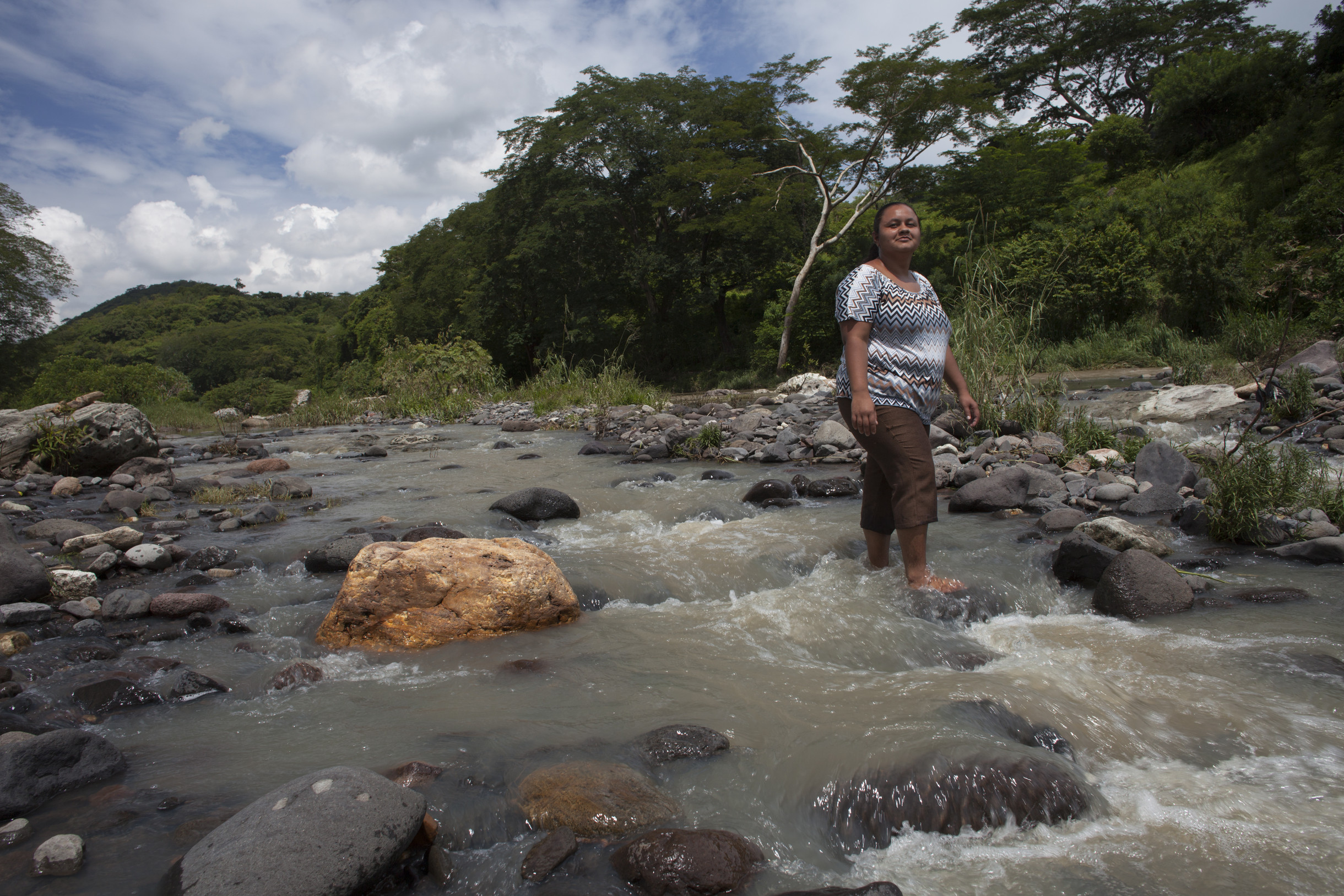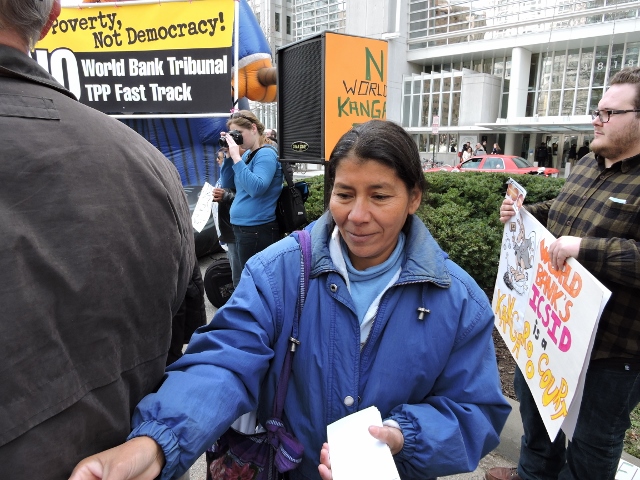Extractives and transparency: Latin America’s heritage at stake
 Open pit mine in the Western Highlands, Guatemala, which was established without the proper consent of indigenous Maya people in the area near San Miguel Ixtahuacan. Photo by Anna Fawcus / Oxfam America
Open pit mine in the Western Highlands, Guatemala, which was established without the proper consent of indigenous Maya people in the area near San Miguel Ixtahuacan. Photo by Anna Fawcus / Oxfam America
The need for fossil fuels in developing global economies could erase more than the environment in resource-rich Latin America, panel says.
Julio Urdaneta is the Editorial Assistant for Oxfam America’s Politics of Poverty blog.
As it continues to grow in scope and size, a lack of transparency and accountability plagues the extractive industries sector in Latin America.
Boosted by investment capital from energy-hungry economies like Brazil and China, extractive industries in Latin American nations in Central and South America are damaging much more beyond the environment.

“The boom on investment in extractive industries is having a deep socio-economic and political impact in the cultural heritage of indigenous peoples and Afro-descendants in the region,” said Felipe Agüero, program officer from the Ford Foundation in Chile and one of the panelists at the “Extractive Industries and Civil Society in Latin America” forum, the first to be held at Oxfam America’s new Washington D.C. offices March 20.
Panelists also included César Gamboa, executive director of the Peruvian Amazon conservation organization DAR, Francisco Rocael Mateo from the Council of Mayan People of Western Guatemala and Emily Greenspan, Senior Policy Advisor, Oxfam America.
In Latin America, there is no discussion on a public level of the activities of extractive industries, Agüero said. “There is also a political imbalance, as some ministries or government agencies, such as finance and economics, have more weight than those working with the environment and cultural safeguards when it comes to make decisions allowing extractive companies to exploit a certain territory,” he added.
Many countries are rejecting extractive industries altogether. In Guatemala, 70 percent of the population rejects mining in the country’s territory, according to a poll by local firm Prodatos quoted in Prensa Libre, the country’s biggest newspaper and cited by Rocael Mateo at the event.
“There is a rejection of mining,” he said, “and this rejection is because there is an understanding that this is a new economic model, this development isn’t something we know, we aren’t included in this development model. We don’t need signs, indicators to show this, this is reality.”

His comments found resonence in the audience. “The rules of the game are so dark,” said Salvadorian activist Vidalina Morales, who is in Washington to raise awareness about the US$300 million lawsuit mining giant OceanaGold has filed at the International Center for the Settlement of Business Disputes against El Salvador. “[The Salvadorian government] could put this [lawsuit] money toward social programs, these companies have violated the laws, the communities don’t have the ability to speak out and influence treaties.”
Oxfam is committed to help increase transparency and accountability in the extractive mining sector in the Americas and all over the world. Check Oxfam’s “Natural Resources and Rights section” and see how we are promoting openness and change on a global scale.